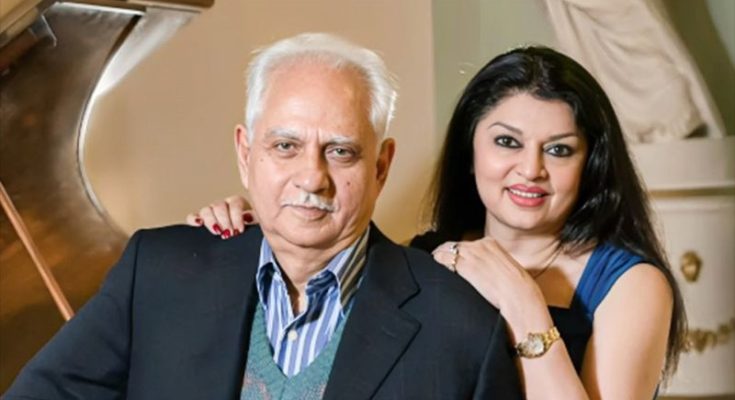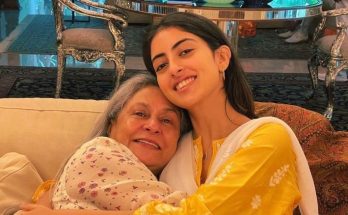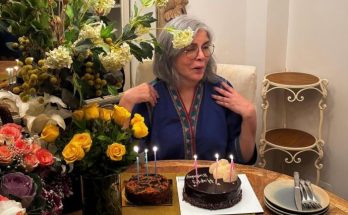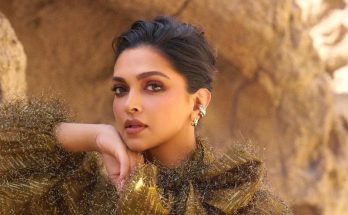#Kiran Joneja# Ramesh Sippy# Buniyaad
IBNS-CMEDIA: Actress Kiran Joneja, who became a household name playing Veerawali in Buniyaad in the second half of 1980s, is now busy running a school of film and entertainment and grooming young aspirants. In a conversation with Singapore-based Connected to India Founder and CEO Himanshu Verma, Joneja speaks on her journey on TV and films, her filmmaker husband Ramesh Sippy and more…
Q. How did you start your journey?
A. I started at 17 when I was studying at LSR (Lady Shri Ram College) in Delhi. I started modelling in the first year of my college. So I started my career as a model at 17. But of course, my work in Bombay (now Mumbai) happened much later.
Q. It seems you were a good student. How come you were allowed to get into acting?
A. Acting was not really my plan. I started modelling because it just came to me after I did a fashion show in college. One of the directors of an advertising company who was present at the show saw me as a model and then I was approached for an advertisement. So my career started with first modelling and then advertisement. I came to Bombay for modelling and not to act but the transition just happened. I was fond of acting as I have done theatre as a child. But I had not really decided to become an actress. I think I got bored with modelling after a few years when I had reached a stagnation because I had achieved everything as a model and had nothing to go beyond it. It was exactly then television started happening. A very few people are aware that my television debut was in Delhi. I had done only one programme on Doordarshan while in college. In Mumbai, Paying Guest was my first work where I did one episode. So it just happened.
Q. How did your physician father react to your career choice since the era of late 1980s and early 1990s was very different from now?
A. As I started as a model, everything happened in my career gradually. I had already moved to Bombay because I kept getting assignments in Mumbai. My parents also realised that flying in and out of Delhi was not working. So they agreed to my shifting to Mumbai. It was a gradual process, so acceptance from my parents’ side came naturally. My father was not upset about modelling but he was concerned about my studies. He wanted me to first finish my academics and then do whatever I feel like. But I never listened to him and continued doing what I had to do (laughs). Acceptance from my family came due to the slow and gradual progression of my career.
Q. Your character Veerawali in Buniyaad was unconventional back in those days. How did you grab the role? How do you think Veerawali changed the characterisation of women in Indian films and television?
A. Amit Khanna, who was very actively working back then, had seen me in a satirical comedy television series Wah Janab, where I starred alongside Shekhar Suman. Amit Khanna, who was onboard in Buniyaad also, had recommended me to Ramesh-ji (Ramesh Sippy) for a role, which actually had been done by someone else on whom the director was not happy. So Ramesh-ji was looking for a change. 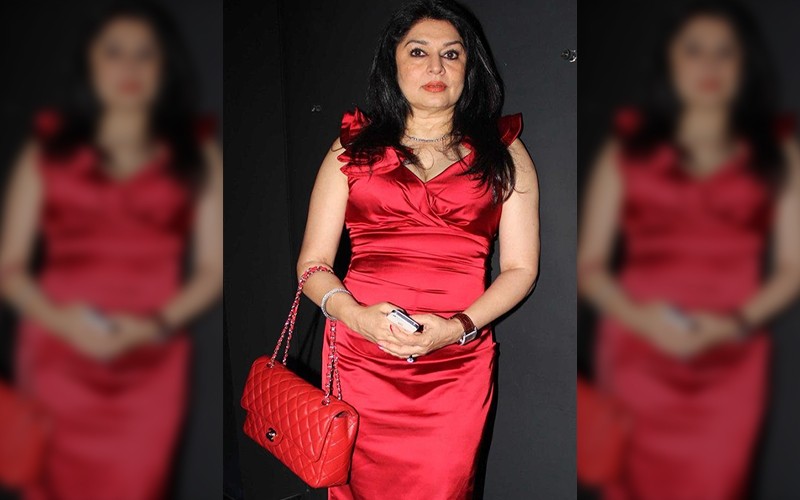 Kiran Joneja at an event in July 2022. Photo: Kiran Joneja/FB
Kiran Joneja at an event in July 2022. Photo: Kiran Joneja/FB
Q. It’s so contrasting for your personality as a Delhi girl going to LSR and playing a role like Veerawali. Were you convinced that the role will be as big as a hit when you first heard the role?
A. I didn’t hear the role. I didn’t have the courage to even ask Mr. Sippy or any director at that time about the role. But he asked me whether I was fine playing with someone from young to old. I felt it was a great opportunity without realising the film industry’s perception that an actor gets stereotyped to older characters once he/she plays an older version.
Q. Do you think your non-filmy background helped you to slip into this industry comparatively with lesser challenges?
A. I won’t say that. Actually my father was a combination of modernity and tradition. So he believed women should work and visualised me as a teacher or a professor. But I was not interested in becoming a teacher but had a keenness to do theatre from childhood. I used to prepare skits and act impromptu with friends in school. I think my training as an actor subconsciously began back then when I was around 10 years old. I did some commercial plays in college too but as a hobby. I never dreamt of making a grand entry into the film world. But things just happened.
Q. After Veerawali in Buniyaad, the next character that made you a household name was Ganga in Mahabharat. What did you feel about portraying Ganga? Did you expect that kind of fandom?
A. I just work and enjoy whatever I do. I can’t do something if I feel it is boring. I never look at results. I don’t have expectations. It happens. But one has to be genuine, work hard at whatever one does, give it all and leave it. After giving everything, it depends on luck, opportunity and many other factors.
Q. Following Veerawali and Ganga, could you portray the kind of roles you wanted to?
A. I never really had the opportunity. I got into marriage after that so the career never really progressed. It was sort of the beginning and end of my career. I never really pursued it ambitiously.
Q. Was it a nepotism call from you and Mr. Sippy to not work anymore?
A. I did work with him (Ramesh Sippy) in a film called Akayla. But I personally think, as per my perception, he was conscious of the fact of not promoting his wife. It probably didn’t seem professional to him so I can understand that being a professional myself. I didn’t push it either. It’s fine. I have had a great marriage with him. I don’t think I missed out too much.
Q. How could you stay immune to all controversies?
A. It is because there was no controversy. I had no controversy before and after marriage so no one could get anything.
Q. Do you watch content nowadays?
A. A lot. Both of us (Kiran Joneja and Ramesh Sippy) watch a lot. We are binge-watchers, who can sit for six hours continuously and watch content. We finished all episodes of the original TV series 24 in three days over the weekend. So we are both very passionate about the content, watching and learning. We watch a lot together, so that’s one among many things which we have in common. Unlike many couples who discuss kids and their examinations, we talk about films, scripts, performances, and watch theatre both in India and abroad so there is a lot in common and that keeps the marriage alive.
Q. You also run a school of film and entertainment (Ramesh Sippy Academy of Cinema & Entertainment). Tell us how actively you are involved in its functioning?
A. I am involved in both my offices. I am involved in the film office also, do a lot of admin and storytelling sessions and manage a lot of things. Since that started a few years ago, it needs more attention because it was a new field for us. We have never been in education. A lot of learning and hard work is going into it, trying to figure out the right ways. I have no training. I was never trained in business management, any kind of admin so I have learnt on the job so it’s been tough. Now with seven-eight years down the line, I think things are kind of settled and I am finding it a lot easier.
Q. What are the projects you are working on right now?
A. We have got two-three projects across film and OTT on which we are working on right now. All of those projects are at different stages of production.
Q. You had built a documentary on Ramesh Sippy. Is it coming out soon?
A. I am still on it. I have almost completed it. It will hopefully be released this year. 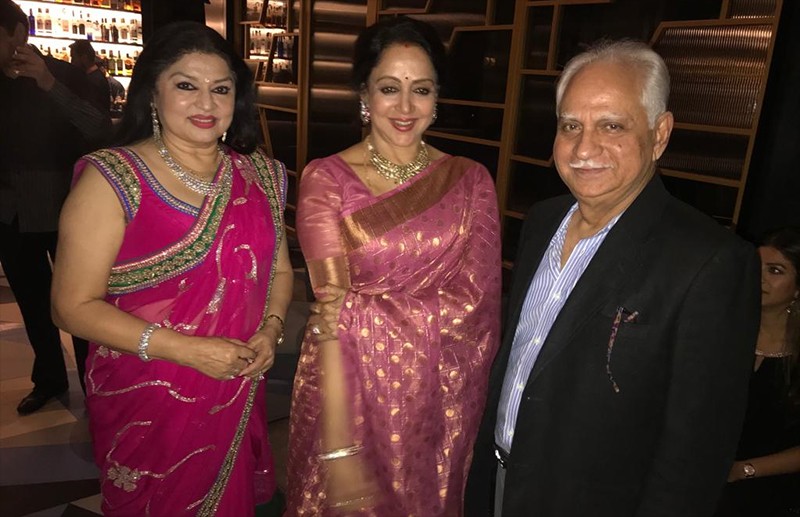 Kiran Joneja with Hema Malini and Ramesh Sippy. Photo: Kiran Joneja/FB
Kiran Joneja with Hema Malini and Ramesh Sippy. Photo: Kiran Joneja/FB
Q. Ramesh Sippy’s Sholay completes 50 years in 2025. Is the release date well thought out?
A. It’s a coincidence but it did activate the thought of completing the documentary and releasing it. I started the documentary out of my passion. These programmes were not really sought after when I started making it. It was my passion to record what Mr. Sippy has done in his life. It was more a personal thing to me. But in the present time, documentaries are anticipated. I feel it’s very important to document what one has done in his life. It’s very important to make an autobiography or a documentary about people who have achieved something because this documentation will stay forever.
Q. How have you seen the changes in the film management and productions over the decades and what are the things you are incorporating in your school?
A. The academy is exciting to me because it’s also very creative in its own way. From VFX to AI, we are constantly introducing changes and upgrades. It’s very important that the students learn how to use AI and incorporate them. Students learn how to use a certain app to be able to handle the production, part of the shooting, storytelling et al. We do masterclasses like that from time to time so we add these things into the course constantly and update. I want our students to be updated so that they don’t find themselves lagging behind in anything when they enter the industry.
Q. Apart from the documentary, what are the things you are looking forward to this year?
A. My students have made a lot of short films which I am working on to see those getting distributed and released. I am very excited about these short films because it’s the opportunity for the students to showcase their work everywhere. It also enhances their opportunity to work independently. A lot of them have already opened their own little studios. I would want my students not to be job seekers. They should be entrepreneurs and that’s what I am looking at.
(Text: Souvik Ghosh / Photo: Kiran Joneja/Instagram/FB)

